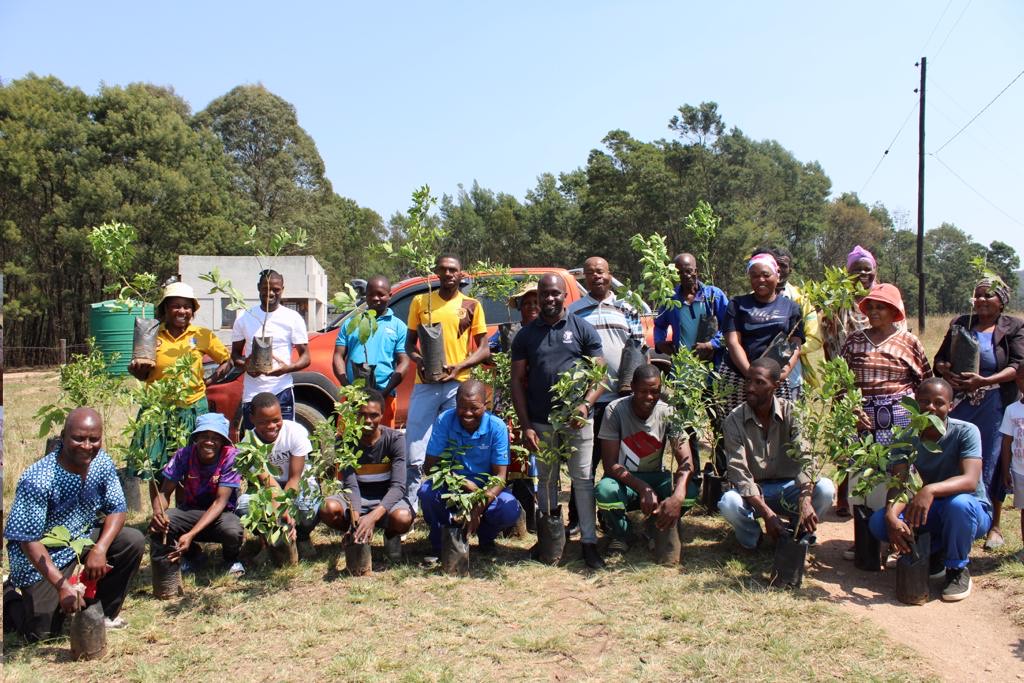
By Siphesihle Dlamini
The 20-member Libhaca Labomake, a bee-keeping cooperative have received over 100 fruit trees from the Woman Farmer Foundation (WFF) and the Global Environmental Facility (GEF) to enhance food security and improve biodiversity.
Each beekeeper received five fruit trees. The trees which were given to the beekeepers included peach, orange, naartjie, and avocado trees. WFF Field Officer, Nkosinathi Dlamini took the recipients through the basics of planting and caring for a tree, sharing what an individual needs to know. He reflected on how trees are a long-term investment and encouraged beekeepers to grow more trees.
This initiative forms part of a year-long project by WFF to revive an apiary site in the Macudvulwini community in Ngwempisi Constituency under the Manzini region. The site was damaged by a fire and while some beekeeping continues in the area, it is not to its previous glory. The identified beneficiaries are involved in beekeeping at the household level since the community apiary site was vandalized and are keen to revive their beekeeping cooperative.
ALSO READ: NASA’s first asteroid sample parachutes into Utah desert
The fruit trees the beekeepers received are a part of the ongoing project which began on August 24, 2023. This first batch of trees distributed through the project will be planted in the beneficiaries’ households before a second batch of trees planted at the apiary site. According to the WFF Communications Officer, this initiative is to improve the livelihoods, food security, and climate adaptivity of the beekeepers both at an individual level and collectively. “The planting of the trees also contributes to the government’s initiative to plant 10 million trees in five years,” she said.
Notably, a team from the Woman Farmer Foundation will train the beekeepers not only on beekeeping but also on agribusiness management to improve the sustainability of the site after the project ends. Gender equality awareness workshops will be used to sensitize beneficiaries about gender mainstreaming particularly to increase the participation of women in bee husbandry.
…Why trees matter
Trees are important for beekeepers because they provide food, shelter, and nesting material for bees. Beekeepers can plant and care for trees to support their bees and the environment. According to statistics provided by WFF, trees produce about 118 kilograms of oxygen per year. They are also habitats for more than 80 per cent of the world’s biodiversity.
Furthermore, trees reduce air pollution by up to 50 per cent and greenhouse gases by 17 per cent. Trees also prevent soil erosion by up to 75 per cent and water runoff by up to 40 per cent. Moreover, trees beautify our landscapes and offer shade that can lower temperatures by 12.22°C.


